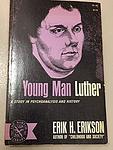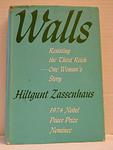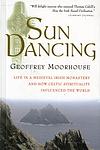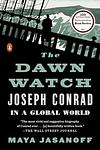The Greatest German, Unknown "Nonfiction, History" Books Since 1950
Click to learn how this list is calculated.
This list represents a comprehensive and trusted collection of the greatest books. Developed through a specialized algorithm, it brings together 305 'best of' book lists to form a definitive guide to the world's most acclaimed books. For those interested in how these books are chosen, additional details can be found on the rankings page.
Genres
The category of "History" in books refers to the study and interpretation of past events, societies, and cultures. It encompasses a wide range of topics, including political, social, economic, and cultural developments, as well as the lives of individuals and groups who have shaped the course of history. History books can be written from various perspectives and may focus on specific time periods, regions, or themes. They aim to provide readers with a deeper understanding of the past and its impact on the present.
Countries
Date Range
Reading Statistics
Click the button below to see how many of these books you've read!
Download
If you're interested in downloading this list as a CSV file for use in a spreadsheet application, you can easily do so by clicking the button below. Please note that to ensure a manageable file size and faster download, the CSV will include details for only the first 500 books.
Download-
1. The Origins of Totalitarianism by Hannah Arendt
The book explores the roots of totalitarian systems, particularly focusing on Nazi Germany and Stalinist Russia. It delves into the historical, social, and political circumstances that led to the rise of these oppressive regimes, including anti-Semitism, imperialism, and the decline of the nation-state. The author further discusses the nature of power, the role of propaganda, and the manipulation of the masses in these systems, providing a comprehensive analysis of totalitarianism.
The 578th Greatest Book of All Time -
2. Night by Elie Wiesel
This book is a memoir of the author's experiences during the Holocaust, specifically in the Auschwitz and Buchenwald concentration camps. The narrative focuses on the relationship between a father and son under the most extreme circumstances, the loss of faith in God, humanity, and in each other, and the horrifying reality of the systematic genocide of six million Jews during World War II. The book is a poignant and stark examination of the depths of human evil and the enduring power of hope and survival.
The 635th Greatest Book of All Time -
3. Eichmann in Jerusalem: A Report on the Banality of Evil by Hannah Arendt
This book is a thought-provoking exploration of the trial of Adolf Eichmann, a major organizer of the Holocaust. The author argues that Eichmann was not a fanatical ideologue, but rather an ordinary individual who simply followed orders and bureaucratic procedures, highlighting the terrifying potential for evil in any system that values obedience over personal responsibility. The concept of the "banality of evil" is introduced, suggesting that horrific acts can be committed by ordinary people under certain conditions.
The 977th Greatest Book of All Time -
4. All But My Life by Gerda Weissmann Klein
"All But My Life" is a poignant memoir of a young woman's six-year ordeal as a victim of Nazi cruelty. The narrative follows her life from a peaceful, upper-middle-class childhood in Bielitz, Poland, through her horrifying experiences and loss during the Holocaust, to her miraculous survival and marriage to an American soldier. It is a story of courage, resilience, and the enduring power of hope.
The 2690th Greatest Book of All Time -
5. A Comparative Study Of Total Power by Karl Wittfogel
The book in question is a scholarly examination of the concept of 'hydraulic civilization,' a term used to describe societies that manage large-scale water projects such as irrigation and flood control. The author argues that the bureaucratic structures necessary to control water resources in arid regions historically led to the centralization of power and the development of autocratic or despotic forms of government. Through comparative analysis, the work explores how the management of water resources influenced social, economic, and political structures, and how this 'total power' shaped the civilizations in question, with a particular focus on Asia. The study delves into the relationship between natural environments, technological capabilities, and the evolution of political systems.
The 3279th Greatest Book of All Time -
6. Young Man Luther by Erik H. Erikson
This book is a psychological analysis of a seminal figure in religious history, focusing on his early life and the internal struggles that led to his revolutionary actions. The author, a prominent psychologist, applies psychoanalytic theory to understand the subject's tumultuous journey from a conflicted young man to a leader who would challenge the very foundations of the Church. The work delves into the protagonist's experiences with authority, his quest for spiritual certainty, and the personal crises that fueled his theological breakthroughs, ultimately shaping the course of Western civilization.
The 3279th Greatest Book of All Time -
7. Walls: Resisting The Third Reich by Hiltgunt Zassenhaus
"Walls: Resisting The Third Reich" is a powerful memoir of courage and defiance, recounting the experiences of a young German woman during World War II who risked her life to oppose the Nazi regime. Working as an interpreter in the German courts, she secretly aided Scandinavian prisoners of war, passing along messages and providing them with hope and support. Her clandestine activities, carried out under the constant threat of discovery and execution, showcase the profound bravery and moral conviction required to resist oppression from within the very heart of a totalitarian state. The narrative not only captures the personal struggle against tyranny but also serves as a testament to the human spirit's capacity for resistance and solidarity in the face of overwhelming adversity.
The 3462nd Greatest Book of All Time -
8. E=Mc2 by David Bodanis
The book provides a layperson-friendly explanation of the world's most famous equation, delving into the history, science, and people behind its development. It explores the biographies of the scientists who contributed to our understanding of energy and mass, including the equation's originator, and the practical and philosophical implications of the equation's assertion that energy and mass are interchangeable. The narrative also discusses the equation's role in the development of atomic energy and its impact on modern physics, offering an accessible journey through the annals of scientific thought and the revolutionizing discoveries that shape our understanding of the universe.
The 3664th Greatest Book of All Time -
9. The Samaritan Treasure by Marianne Luban
"The Samaritan Treasure" is an intriguing historical novel that delves into the ancient world, weaving a tale of mystery and adventure around the biblical account of the Good Samaritan. The narrative follows an archaeologist who stumbles upon a clue to the legendary treasure of the Samaritans, leading to a thrilling quest that spans continents and centuries. As the protagonist deciphers ancient texts and navigates dangerous liaisons, the story explores themes of faith, cultural heritage, and the enduring allure of hidden riches. The novel is a blend of meticulous historical research and imaginative storytelling, offering readers a captivating journey through time and the human spirit's quest for discovery.
The 5106th Greatest Book of All Time -
10. A Woman In Berlin by Marta Hillers
The book is a powerful, anonymous diary that provides a harrowing first-person account of the final weeks of World War II in Berlin, from April to June 1945. The female author, a journalist, describes the chaos of a city under siege, the brutality of the occupying forces, and the struggle for survival faced by the women of Berlin. She candidly records the widespread rape by Soviet soldiers and the complex web of emotions, compromises, and small acts of resistance that characterized daily life during this period. The diary stands as a poignant testament to human resilience and a stark examination of the often-unspoken atrocities of war.
The 5276th Greatest Book of All Time -
11. Sun Dancing by Geoffrey Moorhouse
"Sun Dancing" presents a vivid tapestry of medieval Irish monasticism, combining historical facts with imaginative storytelling. The book delves into the austere and spiritually intense lives of monks on Skellig Michael, a remote island off the Irish coast, during the early centuries of Christianity in Ireland. Through a blend of narrative and analysis, the text explores the harsh realities of monastic life, the cultural and religious contributions of these communities, and the broader context of Irish and European history during this period. The author weaves together the daily routines, spiritual practices, and legendary tales of these monks, providing a window into a world where faith and endurance converge amidst the isolation of the Atlantic Ocean.
The 5383rd Greatest Book of All Time -
12. The Social History Of Art by Arnold Hauser
"The Social History of Art" is a comprehensive analysis that explores the intricate relationship between art and its social contexts throughout different historical periods. This work delves into how social, economic, and cultural conditions have influenced artistic expression from prehistoric times to the modern era. The author examines various art forms including painting, sculpture, and architecture, and discusses the roles of class, ideology, and the artists' social standings in shaping the art of their times. This book provides a critical perspective on the evolution of art, emphasizing the socio-economic forces that drive artistic innovation and aesthetic changes.
The 5517th Greatest Book of All Time -
13. Kiswahili, Past, Present And Future Horizons by Rocha Chimera
"Kiswahili, Past, Present And Future Horizons" explores the rich history, current state, and potential future of the Kiswahili language. The book delves into the origins and development of Kiswahili, highlighting its significance as a lingua franca in East Africa. It examines the language's role in literature, education, and communication, while also addressing the challenges and opportunities it faces in a rapidly changing global landscape. Through insightful analysis and compelling examples, the author presents a comprehensive overview of Kiswahili's past achievements and its promising prospects for continued growth and influence.
The 6211th Greatest Book of All Time -
14. The Invention Of Nature: Alexander Von Humboldt’s New World by Andrea Wulf
"The Invention of Nature" is a biographical account of Alexander von Humboldt, a 19th-century explorer, scientist, and naturalist who revolutionized the way we understand the natural world. Andrea Wulf chronicles Humboldt's travels across South America, his encounters with indigenous peoples, and his groundbreaking scientific discoveries that challenged prevailing notions of the natural world. Humboldt's ideas about interconnectedness and the unity of nature were ahead of their time and continue to influence environmentalism and conservation today. Wulf's book is a masterful exploration of one of history's most fascinating and influential figures.
The 7072nd Greatest Book of All Time -
15. Thomas Mann Heinrich Mann by Helmut Koopmann
The book provides a comprehensive study of the lives and works of two prominent German literary figures, who were also brothers. It delves into their complex relationship, contrasting ideologies, and individual contributions to literature and culture. The author examines their personal and professional journeys, exploring how their differing views on art, politics, and society reflected the broader intellectual and historical currents of their time. Through a detailed analysis of their novels, essays, and other writings, the book offers insights into the brothers' influence on each other and on the literary world, highlighting their lasting legacy in the context of German and world literature.
The 7131st Greatest Book of All Time -
16. The Thirty Years’ War by Andrew Kopkind
"The Thirty Years’ War" provides an in-depth analysis of one of Europe's most prolonged and devastating conflicts, spanning from 1618 to 1648. The book delves into the complex interplay of religious, political, and social factors that fueled the war, primarily fought within the Holy Roman Empire. It examines the roles of key figures and the impact of the war on the civilian population, highlighting the immense human suffering and the significant political changes it precipitated, which reshaped the European landscape. The narrative also explores the diplomatic maneuvers and treaties, culminating in the Peace of Westphalia, which significantly influenced the concept of state sovereignty and the modern international system.
The 7889th Greatest Book of All Time -
17. The Meaning of Hitler by Sebastian Haffner
This book provides an insightful analysis of Adolf Hitler's life, his rise to power, and the devastating impact of his rule. It delves into Hitler's ideology, his strategies, and the psychological factors that contributed to his becoming one of history's most infamous dictators. The book also critically examines the factors that allowed Hitler's rise and the world's response, offering a comprehensive understanding of this dark chapter in human history.
The 7937th Greatest Book of All Time -
18. German History 1800–1918 by Thomas Nipperdey
This book offers an in-depth and comprehensive examination of German history from 1800 to 1918. It delves into the political, social, and cultural transformations that occurred during this period, exploring the rise of nationalism, the impact of industrialization, the evolution of the German states, and the lead-up to the First World War. The author provides detailed analysis of key events, figures, and movements, weaving a rich tapestry of the forces that shaped modern Germany.
The 8310th Greatest Book of All Time -
19. Along The Ganges by Ilija Trojanow
The book is a travelogue that takes the reader on a captivating journey along the sacred Ganges River, from its source in the Himalayas to its delta in the Bay of Bengal. The narrative is rich with descriptions of the diverse landscapes, cultures, and people encountered by the author. It delves into the profound spiritual significance of the river to millions of Hindus, as well as the contemporary challenges it faces due to pollution and modernization. Through personal reflections and encounters, the author explores the complex relationship between the river and the civilization it has nurtured for centuries, offering insights into the historical, religious, and ecological aspects of this iconic waterway.
The 8445th Greatest Book of All Time -
20. Mistress to an Age: A Life of Madame De Stael by J. Christopher Herold
"Mistress to an Age: A Life of Madame De Stael" is a comprehensive biography of Germaine de Stael, one of the most influential women of the 18th and 19th centuries. The book delves into her role as a prominent writer, intellectual, and political activist during the French Revolution and Napoleonic era. It also explores her personal life, detailing her tumultuous relationships, her exile from Paris, and her influential salon that attracted many of the era's leading intellectuals and artists.
The 10138th Greatest Book of All Time -
21. Crusade and Jihad: Islam and the Christian World by Bassam Tibi
This book explores the historical, ideological, and political aspects of the Crusades and Jihad, comparing and contrasting the two. It delves into the origins and evolution of the Crusades and Jihad, their impact on Christian and Islamic societies, and their relevance in today's world. The author also examines the role of religion in conflicts and the use of religious ideologies for political purposes, providing a comprehensive understanding of these complex issues.
The 10458th Greatest Book of All Time -
22. The Dawn Watch by Maya Jasanoff
"The Dawn Watch" explores the life and times of Joseph Conrad, delving into the profound impact of his experiences as a sailor and immigrant on his celebrated literary works. The book weaves together a biography of Conrad with an analysis of the globalization processes that shaped the modern world, as reflected in his novels. By examining themes such as imperialism, capitalism, and cultural encounters, the narrative not only sheds light on Conrad's personal struggles and insights but also on how his writings foresaw and articulated the complexities and challenges of today's global society.
The 11067th Greatest Book of All Time -
23. The House Of The Dead by Daniel Beer
"The House of the Dead" explores the brutal reality of life in Siberian penal colonies during the nineteenth century, where the Russian Empire sent thousands of prisoners to endure incredibly harsh conditions. The book provides a detailed historical account, drawing on a wealth of archival material and personal stories to illuminate the lives of these exiles. It examines the impact of exile on the transformation of Russia, revealing how the penal system influenced both the society and the political landscape, including the rise of revolutionary movements. Through its vivid narrative, the book paints a comprehensive picture of suffering, survival, and the human capacity to adapt in one of the most inhospitable places on earth.
The 11067th Greatest Book of All Time
Reading Statistics
Click the button below to see how many of these books you've read!
Download
If you're interested in downloading this list as a CSV file for use in a spreadsheet application, you can easily do so by clicking the button below. Please note that to ensure a manageable file size and faster download, the CSV will include details for only the first 500 books.
Download


















